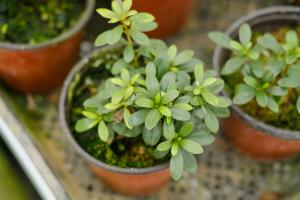Preparing for Planting Vegetables
Planting vegetables is an enjoyable and rewarding experience. However, before you start planting, you need to prepare for the task at hand. First, you must decide on the type of vegetables you wish to plant. Consider your location, climate, and soil type. Ensure that the location you choose for planting receives an adequate amount of sunlight and water. Next, prepare the soil by removing weeds and debris, adding fertilizer and compost, and loosening the soil to make it easy to plant. Finally, gather all the tools and equipment that you will need during planting, such as shovels, hoes, and watering cans.
When to Plant Vegetables
When to plant vegetables depends on the season and your location. Generally, planting in the spring is best for most vegetables, as it allows them to mature during the warm summer months. However, some vegetables like lettuce, peas, and cabbage can also be planted in the fall. You should also consider the recommended planting time for each vegetable. Different vegetables have different growth requirements and maturity periods. Some, such as tomatoes and peppers, need warmer soil and can be planted later in the spring or summer. Others, such as spinach, can withstand cooler temperatures and are best planted in early spring or late summer.
Identifying When Vegetables are Ready for Harvesting
After you have planted your vegetables, it is essential to monitor their growth and identify when they are ready for harvesting. There are various signs to look for to determine when to harvest vegetables. First, observe the vegetable's overall appearance. When fruits and vegetables reach maturity, their color changes, indicating that they are ready for harvesting. Second, check the recommended maturity period for each vegetable. For instance, most vegetables reach maturity within 60 to 90 days. Finally, pay attention to the type of vegetable, as each has a unique sign indicating readiness. For example, tomatoes are ready to harvest when they are firm and fully grown, while lettuce leaves can be harvested when they are young and tender.
Caring for Growing Vegetables
Planting vegetables is only the first step in growing them. Caring for them as they grow is equally important. Regular watering, fertilizing, and weed control are essential to ensure healthy growth. Water the vegetables regularly, especially during dry spells. Fertilize them with organic or inorganic fertilizers to keep them healthy and robust. Finally, remove weeds regularly, as they compete with your vegetables for water, nutrients, and sunlight. With proper care, your vegetables will grow strong and healthy, providing you with a bountiful harvest in no time.
Conclusion
Planting and growing vegetables is a rewarding pastime that can provide you with healthy and fresh produce. Preparing for planting, knowing when to plant, identifying when vegetables are ready for harvesting, and caring for growing vegetables are critical to achieving success in vegetable gardening. With these tips in mind, you can create a thriving and healthy vegetable garden that will provide you with a bountiful harvest for years to come.

 how many times do yo...
how many times do yo... how many planted tre...
how many planted tre... how many pine trees ...
how many pine trees ... how many pecan trees...
how many pecan trees... how many plants comp...
how many plants comp... how many plants can ...
how many plants can ... how many plants and ...
how many plants and ... how many pepper plan...
how many pepper plan...































